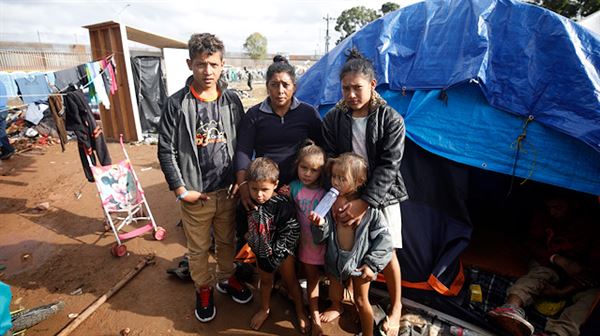The U.S. Justice Department proposed to begin collecting DNA samples from migrants crossing the border to reduce the crime rate. Collecting DNA sample
The U.S. Justice Department proposed to begin collecting DNA samples from migrants crossing the border to reduce the crime rate.
Collecting DNA samples from detained non-U.S. citizens at the border by the Department of Homeland Security (DHS) will facilitate federal, state, and local crime reduction and investigation efforts, the department said in a statement Monday.
“The proposed rule change would help to save lives and bring criminals to justice by restoring the authority of the Attorney General to authorize and direct the collection of DNA from non-United States persons detained at the border and the interior by DHS, with the ultimate goal of reducing victimization of innocent citizens,” said Deputy Attorney General Jeffrey A. Rosen.
“Today’s proposed rule change is a lawful exercise of the Attorney General’s authority, provided by Congress, to collect DNA samples from non-United States persons who are properly detained under the authority of the United States,” Rosen added.
If the rule is implemented, it will be in “full compliance” with the bipartisan DNA Fingerprint Act, which was a component of a larger legislative package that passed the House of Representatives by an overwhelming vote of 415 – 4 and the Senate by Unanimous Consent, according to the statement.
The DNA Fingerprint Act provided the attorney general with exclusive authority to draft regulations to authorize and direct any federal agency to “collect DNA samples from individuals who are arrested, facing charges, or convicted or from non-United States persons who are detained under the authority of the U.S.”
“In advance of this rule change, the Department of Justice and DHS have been working collaboratively to initiate a pilot program for the collection of DNA from non-U.S. persons detained by DHS,” it added.
The rule will be open to a 20-day comment period.
Droves of migrants from Central American countries try each year to cross the treacherous deserts and rivers on the way to the U.S. in a bid to flee violence and poverty in their home countries.
U.S. President Donald Trump has pursued a hardline approach to immigration, both legal and illegal, since coming to office and Washington signed a safe third country agreement with Guatemala in late July and with El Salvador mid-September.
The safe third-country agreement forces Central American migrants to apply for asylum in the signed country and be processed in that country before they can seek asylum in the U.S., even though under U.S. laws migrants are allowed to apply for asylum within the U.S. or at official ports of entry.
Although Mexico rejected such a deal, it reached another one in June with the U.S. administration following a tariff which obligates the country to reduce the immigration flow.
